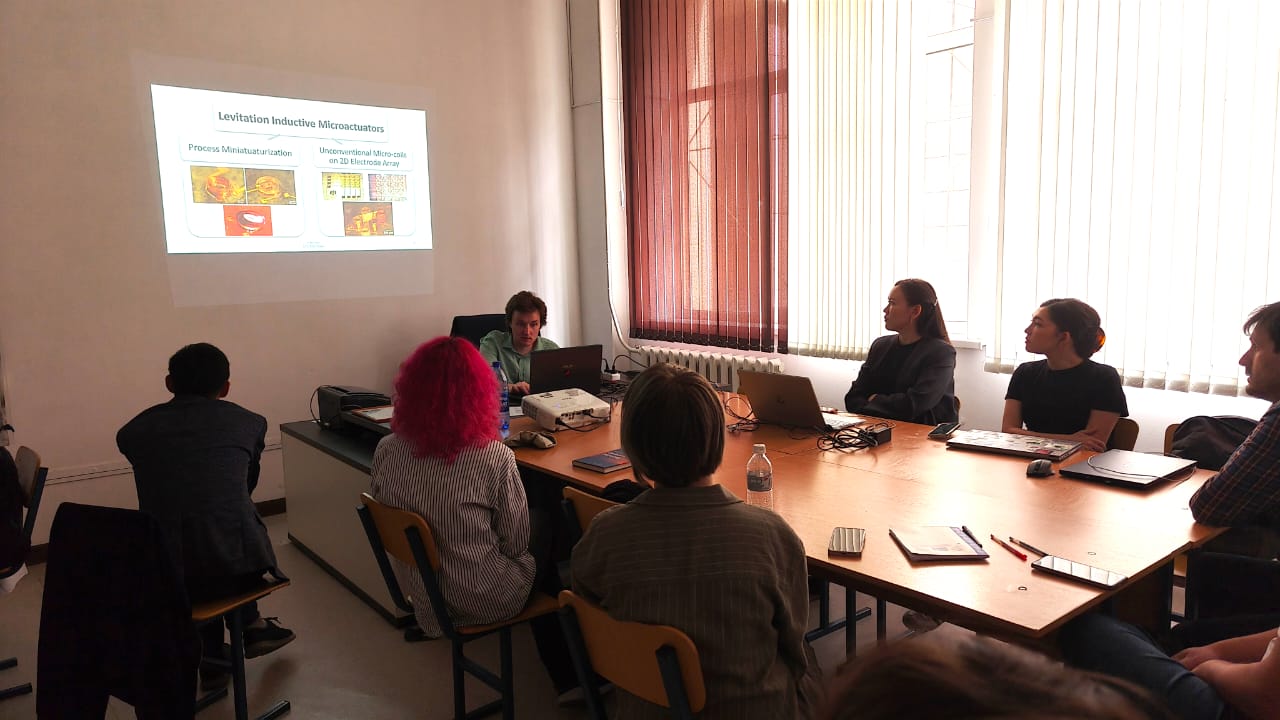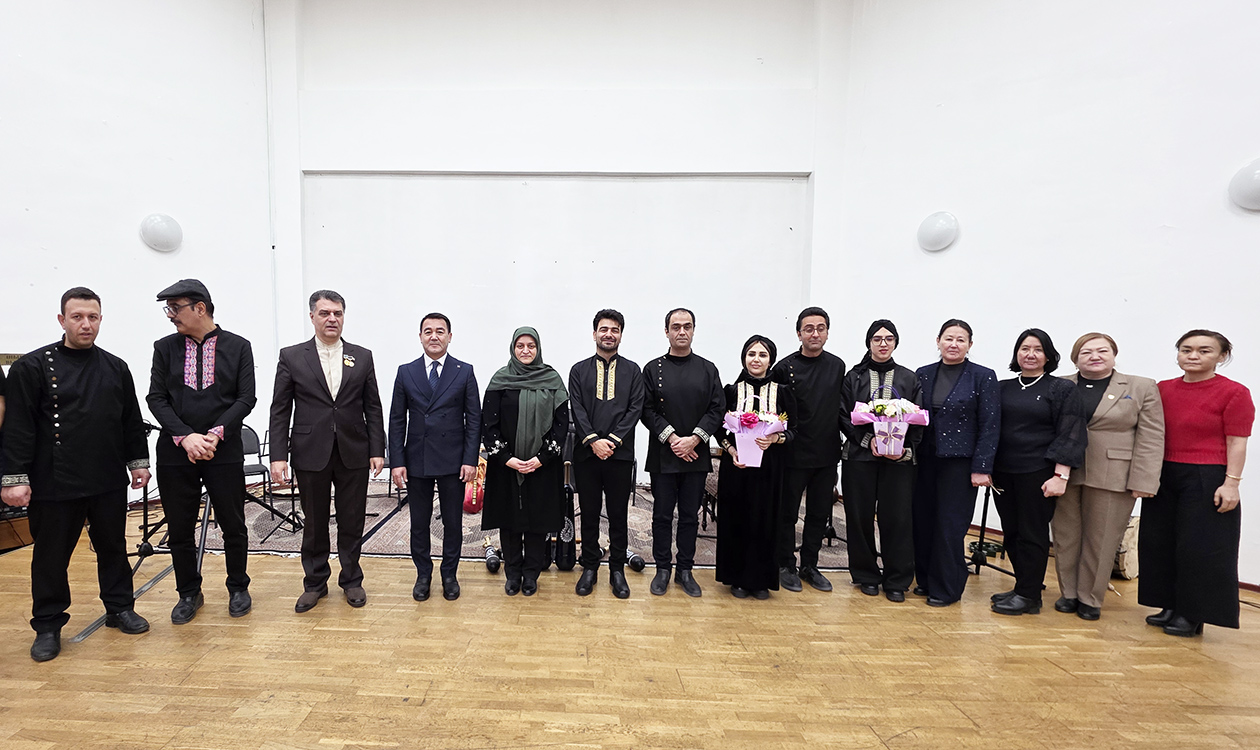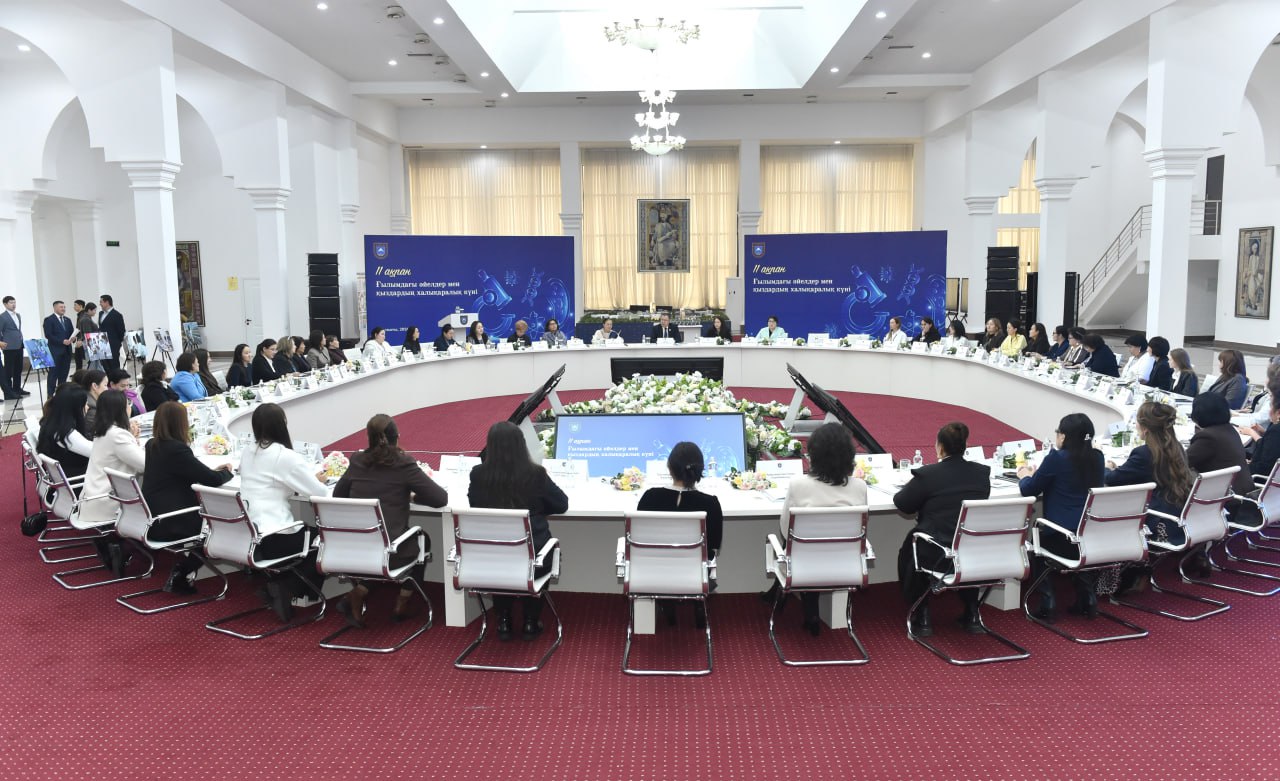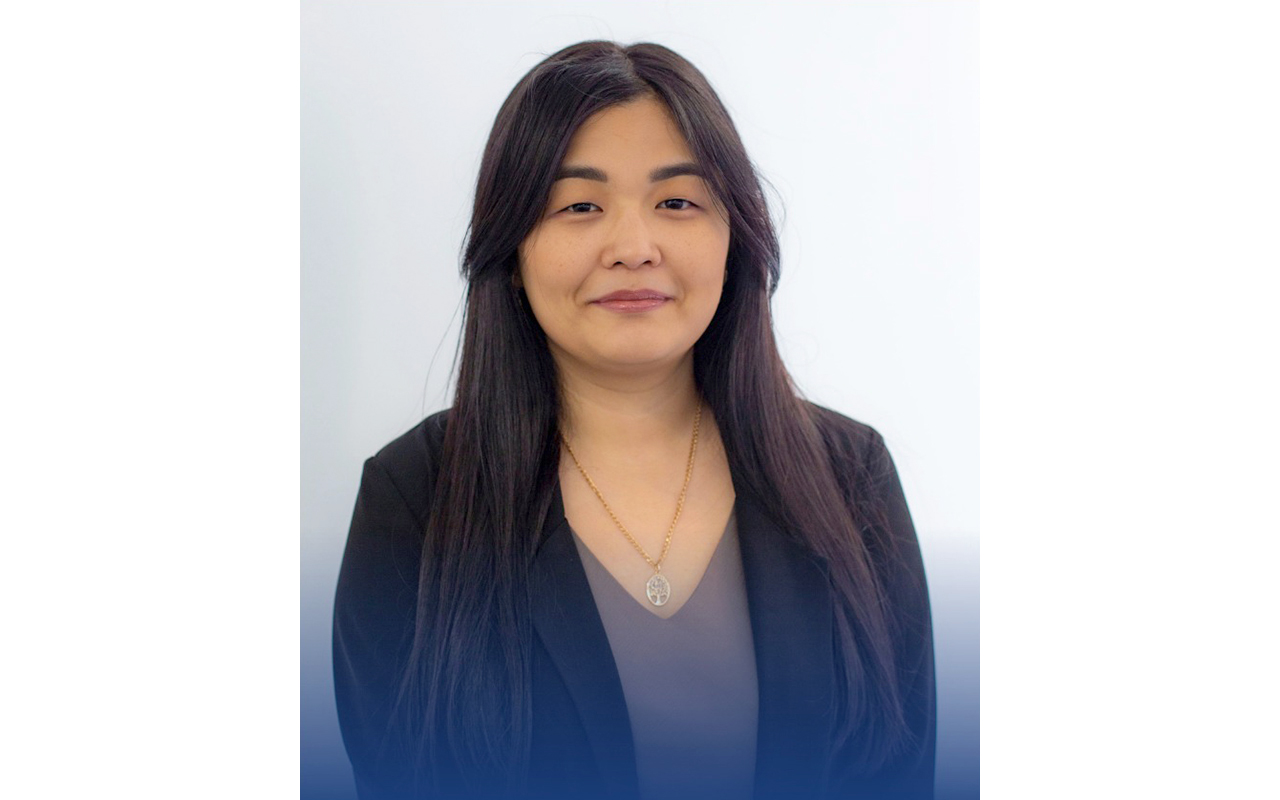- Main
- News
- A scientific seminar was held at the Department of Solid State Physics with the participation of department alumnus and current postdoctoral researcher at Karlsruhe Institute of Technology (Germany), Emil Mamleev. SDG 4 and SDG 17.
A scientific seminar was held at the Department of Solid State Physics with the participation of department alumnus and current postdoctoral researcher at Karlsruhe Institute of Technology (Germany), Emil Mamleev. SDG 4 and SDG 17.

As part of efforts to strengthen international scientific cooperation and develop academic mobility, the Department of Solid State Physics of the Faculty of Physics and Technology at Al-Farabi Kazakh National University hosted a scientific seminar. The seminar featured a presentation by Emil Mamleev, a graduate of the department and currently a postdoctoral fellow at one of Europe’s leading research institutions — Karlsruhe Institute of Technology (KIT), Germany.
During the seminar, Emil Mamleev introduced the faculty staff, PhD students, and master’s students to the latest scientific developments by the KIT research group in the fields of solid-state physics, nanomaterials, and photonics. Particular attention was paid to new-generation functional materials, including two-dimensional structures and innovative optoelectronic systems.
The speaker provided a detailed overview of KIT’s research infrastructure, mechanisms for engaging young researchers in international projects, and opportunities for participation in postdoctoral and academic exchange programs. The discussion also covered potential areas of cooperation between KIT and Al-Farabi Kazakh National University, including joint applications to Horizon Europe and DAAD programs.
The seminar became a significant step toward achieving the United Nations Sustainable Development Goals (SDGs), specifically SDG 4 “Quality Education” and SDG 17 “Partnerships for the Goals.” Promoting academic mobility, supporting young researchers, and expanding international scientific collaboration form the foundation for increasing the university’s scientific competitiveness and integration into the global research community.
The department expresses its gratitude to Emil Mamleev for his informative presentation and willingness to continue scientific collaboration.
Other news


